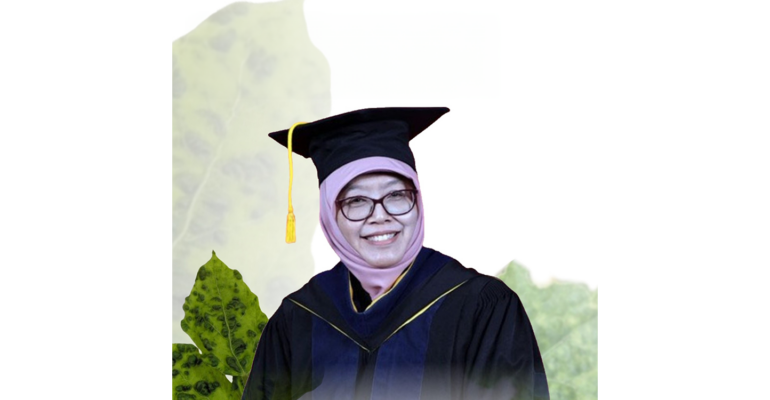Farmers Must Know, IPB University Plant Protection Expert Reveals Two Strategies to Overcome Vegetable Plant Viruses

IPB University Plant Protection Expert, Prof Tri Asmira Damayanti, revealed a strategy to manage viruses in vegetable crops by utilising biological materials. The reason is, so far the most common thing done by farmers is by spraying synthetic insecticides which actually has a negative impact, one of which is environmental pollution.
“The shortcut that farmers often take is to spray synthetic insecticides. This can increase virus transmission due to the death of natural enemies, resistance of aphids and other pests, and result in environmental pollution,” she said in the Press Conference of Pre Scientific Oration of Professor of IPB University held online (20/6).
In addition, insecticides are quite expensive, and are not compatible with organic farming. Moreover, there is currently no chemical virusicide that can control the virus without disturbing its host. Therefore, Prof Tri Asmira said that the virus management strategy must be done indirectly.
Prof Tri Asmira revealed that the strategies that can be carried out are the use of barrier plants and the use of plant extracts and chitosan. The use of barrier plants is a strategy that prevents virus-containing aphids (viruferous) from entering the main crop to transmit non-persistent viruses.
“Barrier plants act as physical barriers, virus reservoirs, camouflage and trap plants to prevent viruferous aphids from entering the main crop,” she explains.
However, she said, this method has received less attention from farmers to be applied in the cultivation of vegetables and non-rice food crops. In fact, these commodities are infected by non-persistent viruses.
In addition, he mentioned that some plant materials such as plant extracts and chitosan can be utilised to manage virus infections. This is because both materials have the ability to induce plant resistance, antiviral and insecticidal effects.
“Spraying crude extracts of meniran, gotu kola, bitter melon, and broken bones showed that they can suppress Bean common mosaic virus (BCMV) through the mechanism of inducing plant resistance. Crude extracts of temulawak rhizome, mrico kepyar leaves, and carnation leaves showed to have antiviral substances that can suppress infection,” she explained.
Her research also showed that extracts of neem leaves, tempuyung, bougainvillea, four o’clock, geranium, cockscomb, pagoda, guava, amethyst, mangosteen peel and red ginger rhizome suppressed BCMV through induction of plant resistance with effectiveness ranging from 68.1 to 100 per cent depending on the type of plant extract.
The effectiveness of bougainvillea leaf extract (81.45%), and four o’clock (80.68%) were also proven to suppress Squash mosaic virus infection in oyong plants. While Moringa leaf extract (77%) and bougainvillea leaf extract (82.4%) were effective in suppressing peanut stripe virus infection.
Likewise, chitosan showed that it could inhibit the severity of mosaic disease ranging from 39.5 to 64.6 per cent and reduce the concentration of mosaic virus ranging from 75.9 to 86.7 per cent.
Prof Tri Asmira also said that the integration of barrier plants with plant extract biological materials or chitosan is an integrated prophylactic and immunisation strategy. It is a virus management package that has been successfully proven to be more effective in managing non-persistent viruses transmitted by aphids in the field.
“The integration of barrier plants and biological materials can be applied as a non-persistent virus management package that needs to be widely utilised and developed. The utilisation of easily available biological materials can reduce the use of synthetic insecticides,” she said.
Its application can be combined with other control methods that are compatible and mutually supportive. “This non-persistent virus management package is very suitable for organic farming and small to medium scale farming, where the majority of vegetable and non-rice food farmers are farmers in this group in Indonesia,” concluded Prof Tri Asmira. (dh/Rz) (IAAS/RUM)



